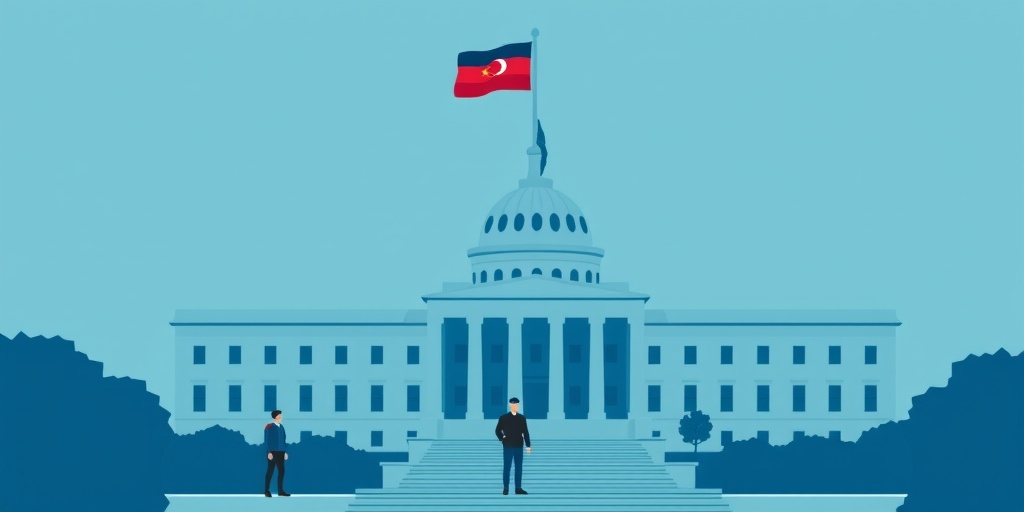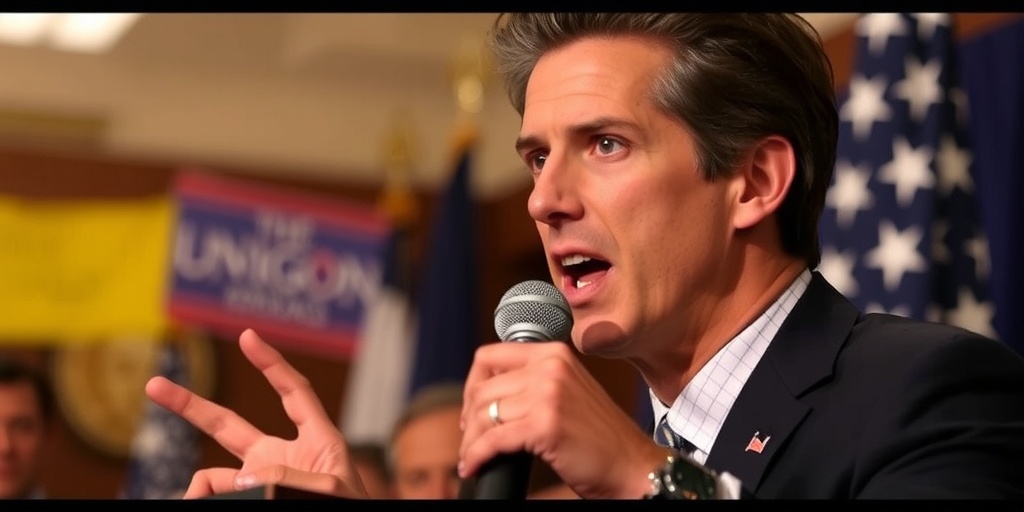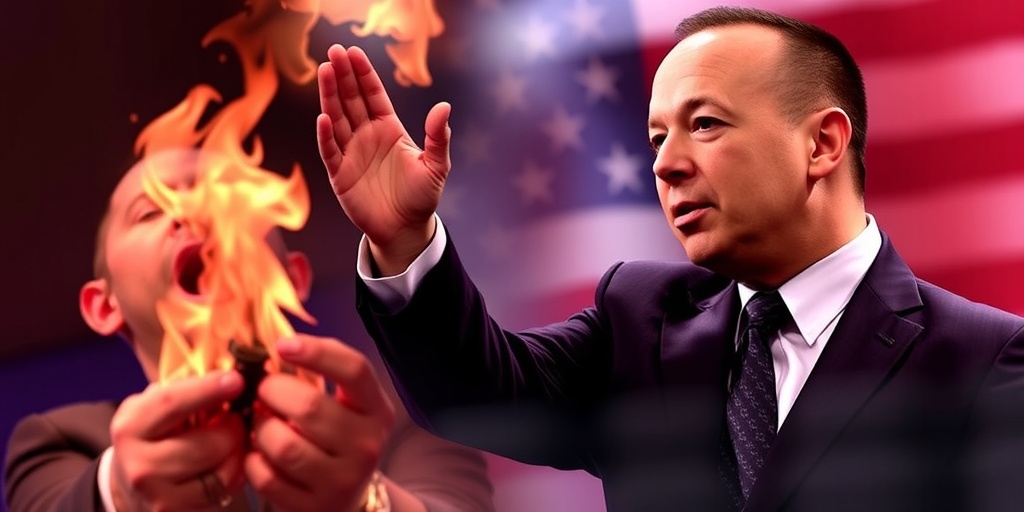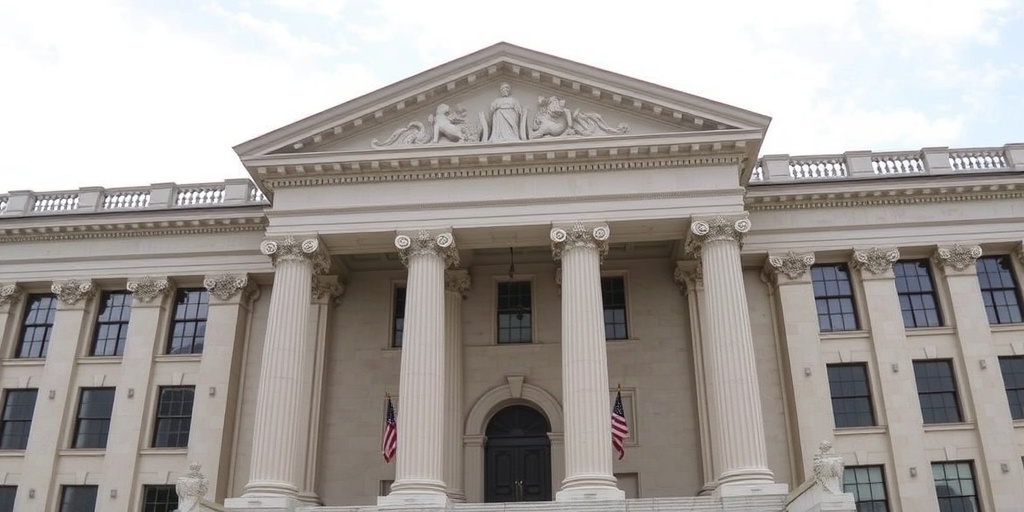Now Reading: Watchdog Aims to Safeguard Probationary Federal Workers
-
01
Watchdog Aims to Safeguard Probationary Federal Workers
Watchdog Aims to Safeguard Probationary Federal Workers

Title: Federal Whistleblower Office Seeks to Halt Mass Firings of Probationary Workers Amid Legal Controversies
In a significant legal move, Hampton Dellinger, the chief of the Office of Special Counsel (OSC), announced that his office will request a suspension of mass firings affecting numerous probationary federal employees. This initiative comes as the Trump administration, spearheaded by Elon Musk’s Department of Government Efficiency, has faced mounting scrutiny over its decision to terminate a large number of federal workers without prior individual assessments.
Dellinger’s office has raised concerns indicating that the mass firings could potentially breach federal laws designed to protect government workers. In a statement released on the OSC’s website, Dellinger pointed out that the decision to dismiss employees on a broad scale, “without individualized cause,” contradicts a reasonable understanding of the law. He outlined plans to petition a government review board to enforce a 45-day pause on the firings, a strategic effort aimed at safeguarding the rights of affected workers.
This latest action highlights the broader implications of the firings, which have disproportionately targeted officials at various levels of government. Many of these officials, who are subject to dismissal, are actively utilizing legal avenues to challenge their own terminations. This intricate legal battle is unfolding against a backdrop of tensions as the Trump administration continues to face backlash for its handling of federal employment practices.
Notably, the Office of Special Counsel, established in 1979, operates independently of the special counsels appointed by the Department of Justice, focusing specifically on protecting whistleblowers and ensuring compliance with personnel laws. Dellinger himself is embroiled in his own legal struggle; he was dismissed from his position on February 7, prompting him to file a lawsuit challenging his termination. A federal judge granted him a temporary restraining order, allowing Dellinger to remain in office until February 26, while his case continues through the legal process. The Supreme Court has so far chosen not to intervene in the matter.
The next step in this complex legal saga involves a review by the Merit Systems Protection Board (MSPB), an independent agency tasked with overseeing actions pertaining to federal personnel management. The MSPB comprises a three-member panel, featuring appointees from both Democratic and Republican administrations. This board has recently come under fire by the Trump administration, with its chairwoman, Cathy Harris, having faced attempts at dismissal. Harris, a seasoned employment attorney, had previously secured reinstatement following a federal judge’s intervention that temporarily halted her termination.
Currently, the Trump administration is seeking to terminate a bulk of the estimated 200,000 probationary federal employees, primarily those who are new to government service. In light of these mass dismissals, numerous workers across various federal agencies have filed complaints with the OSC. These complaints represent the initial step in contesting the firings and assert that the Trump administration’s actions violate established federal personnel laws concerning the termination processes for probationary employees.
Under current federal regulations, probationary workers can only be released following an individualized evaluation that confirms their performance or behavior warrants such action. The law requires that any layoffs occurring during general restructuring or downsizing must adhere to prescribed legal procedures. The OSC’s request for a pause on the firings is predicated on these stipulations.
Legal advocates from Democracy Forward, the organization representing the dismissed employees, have welcomed Dellinger’s decision to challenge the mass firings. Skye Perryman, the president and CEO of Democracy Forward, condemned the Trump administration’s actions, labeling the mass dismissals as “illegal and cruel.” She expressed deep concern over the necessity of protecting public servants from aggressive actions taken by the head of state, emphasizing the potential implications for those dedicated to serving the nation.
As this situation unfolds, it remains to be seen how the courts and oversight bodies will respond to the calls for intervention. The outcome could define the boundaries of federal employment law and set a precedent for how future administrations handle personnel decisions, especially concerning whistleblower protections and the treatment of probationary employees. The ongoing legal battles underscore the critical nature of these issues as they relate to the fundamental principles of fairness and due process in government employment practices.
Stay Informed With the Latest & Most Important News
Previous Post
Next Post
-
 01New technology breakthrough has everyone talking right now
01New technology breakthrough has everyone talking right now -
 02Unbelievable life hack everyone needs to try today
02Unbelievable life hack everyone needs to try today -
 03Fascinating discovery found buried deep beneath the ocean
03Fascinating discovery found buried deep beneath the ocean -
 04Man invents genius device that solves everyday problems
04Man invents genius device that solves everyday problems -
 05Shocking discovery that changes what we know forever
05Shocking discovery that changes what we know forever -
 06Internet goes wild over celebrity’s unexpected fashion choice
06Internet goes wild over celebrity’s unexpected fashion choice -
 07Rare animal sighting stuns scientists and wildlife lovers
07Rare animal sighting stuns scientists and wildlife lovers





















